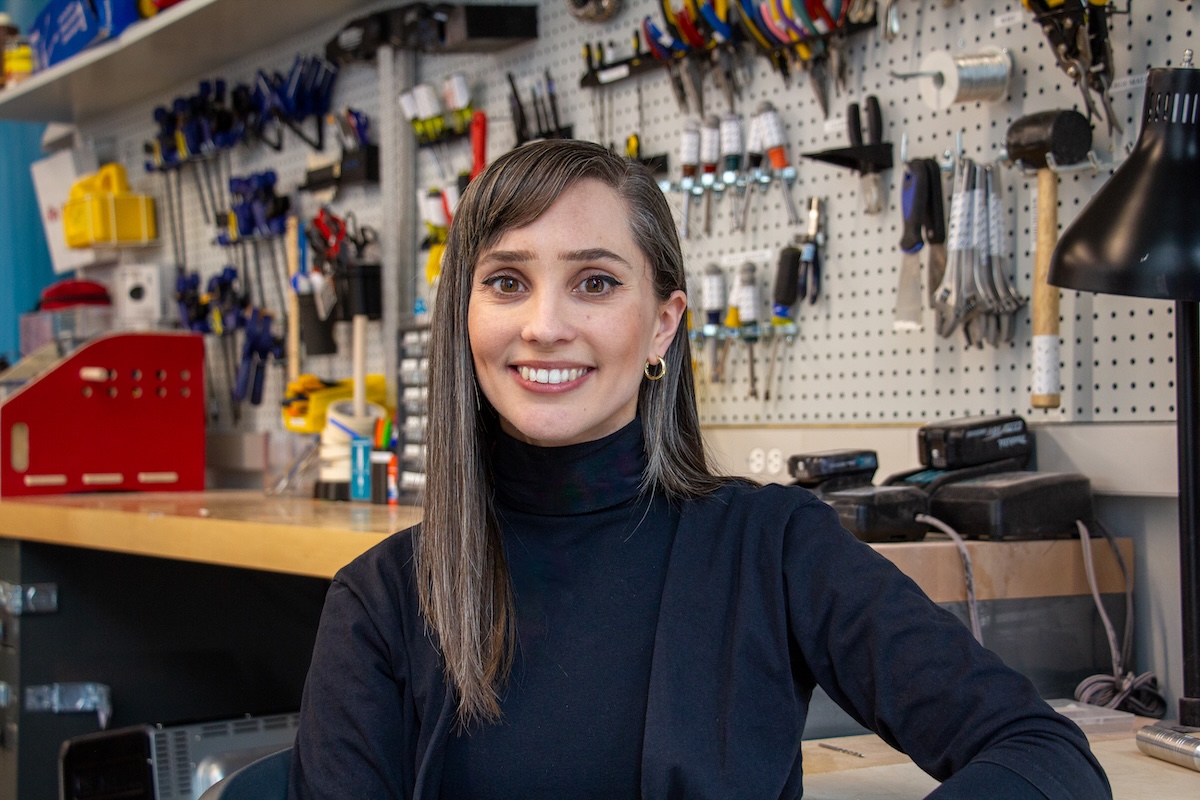
Since Tangen Hall’s 2020 opening, Taylor Caputo (IPD’15), Lecturer in Mechanical Engineering and Applied Mechanics (MEAM), has directed the Engineering Studios @ Venture Lab, introducing hundreds of students to the entrepreneurial possibilities of manufacturing your own ideas.
The primary instructor for the popular elective How to Make Things, which she co-created with Dustyn Roberts, Practice Associate Professor in MEAM, Caputo is also a practicing artist, working at the intersection of traditional craft, product design and technology.
Drawing inspiration from local sources as varied as Pennsylvania Dutch folk art, the work of pop artist (and Pennsylvania native) Andy Warhol and the richness of Philadelphia’s cultural heritage, Caputo connects people and places across time as both a teacher and artist.
With the Engineering Studios @ Venture Lab celebrating their five-year anniversary, Penn Engineering sat down with Caputo to learn more about her vision for the space, and what the Studios offer Penn students, faculty and staff — all of whom can sign up for a free Venture Lab membership online, and use the Studios’ laser cutters, 3D printers and more.
How did you first get involved in making things?
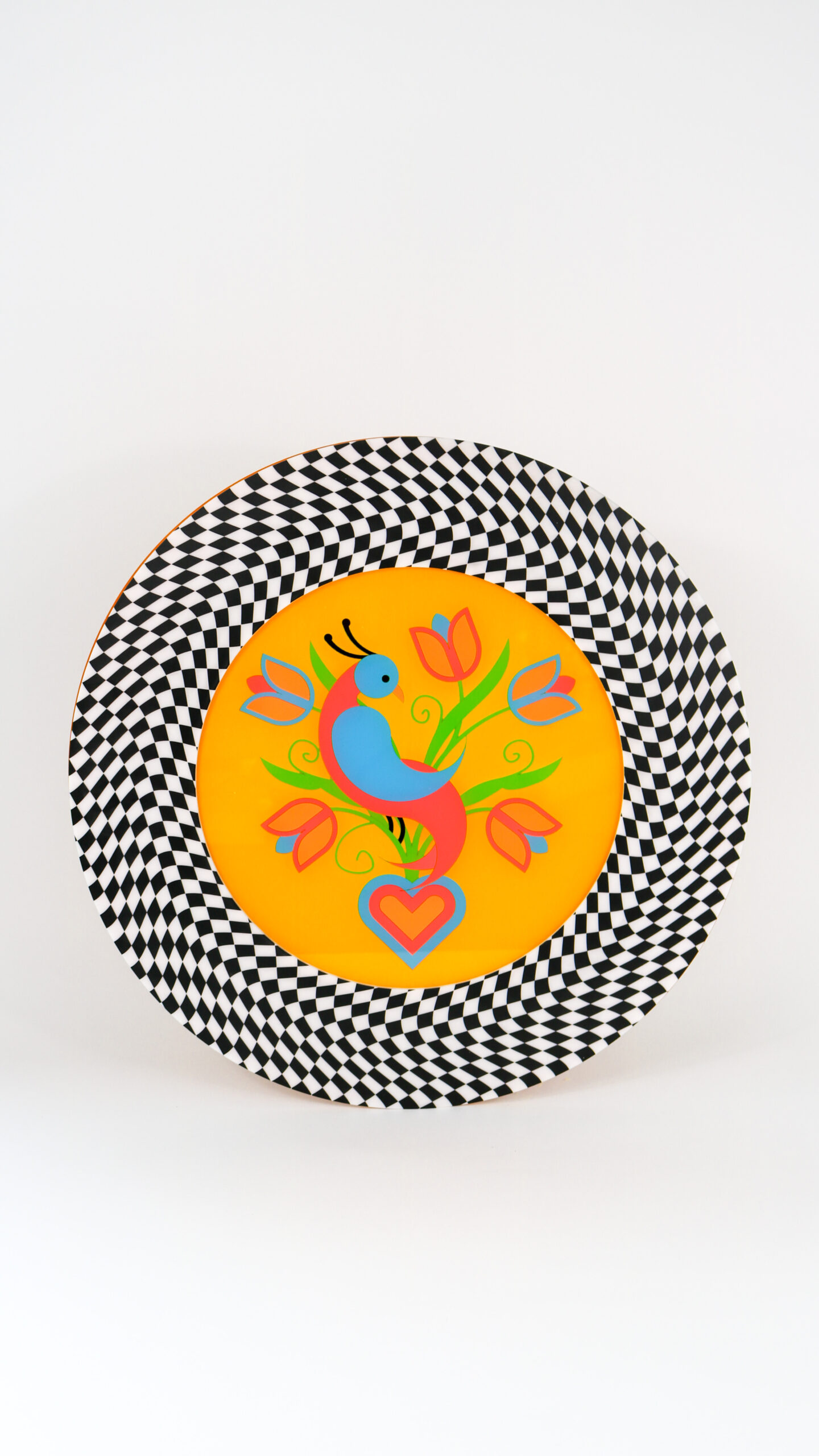
My Aim is True Distelfink, (2024)
I began taking ceramics classes at five years old — and I still practice ceramics today. I’ve always loved working with my hands and creating functional objects. The satisfaction of using or wearing something I’ve made never gets old.
My family also modeled this inventiveness. My grandfather, a Navy-trained engineer, designed and built his family home, ran an egg business and worked in plastics at DuPont. He was a beekeeper, a skilled woodworker and a leather craftsman. His curiosity and hands-on experimentation showed me that learning can take many forms.
Studying metalsmithing, jewelry and computer-aided design (CAD) at Temple University’s Tyler School of Art and later product design at Penn Engineering further ignited my passion for working at the intersection of functional art and technology — and showed me how design can serve as a catalyst for entrepreneurship.
Who can use the Engineering Studios @ Venture Lab?
The Engineering Studios make design and prototyping resources available to the entire Penn community — not just engineers. Although the Studios are powered by Penn Engineering, our users come from nine different schools, from disciplines as diverse as law and veterinary medicine.
The only requirement to access our workspace and free laser cutting and 3D printing services is a 45-minute, in-person safety training. Once completed, members can use the space during our 70-plus weekly operating hours for both curricular and co-curricular projects.
What resources do the Engineering Studios provide?
Our facilities are equipped with state-of-the-art tools, including six Stratasys F120 fused deposition modeling (FDM) 3D printers, two Formlabs stereolithography (SLA) printers, three 60W CO2 Epilog laser cutters, and a 48” x 48” computer numerical control (CNC) router. We also provide access to sewing machines, a woodshop and hundreds of hand tools — the possibilities across these digital and analog fabrication tools is truly endless.
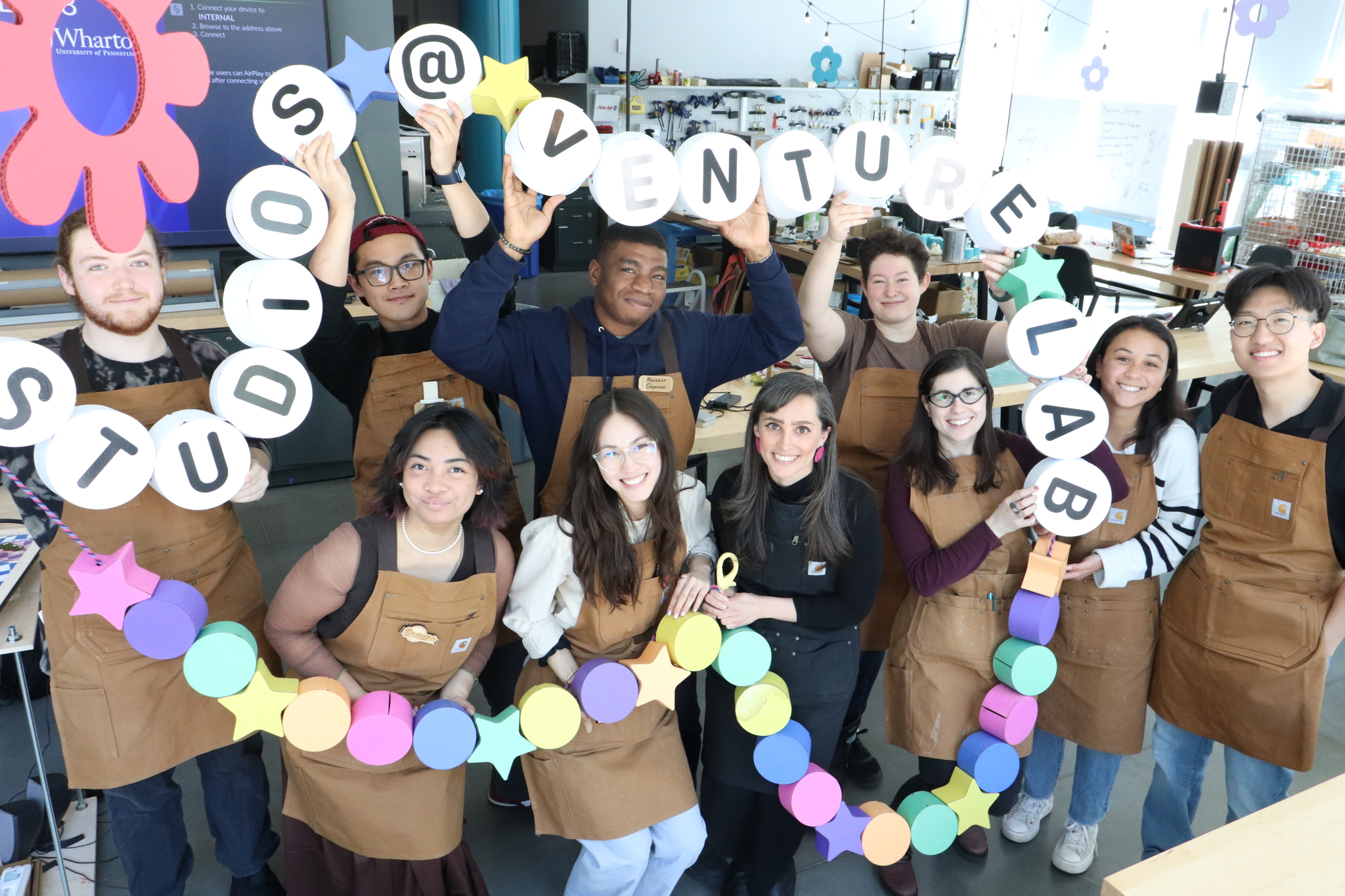
But perhaps the greatest resource we offer is our team of Studio Technicians — they monitor the workspace and run laser and 3D-printing jobs. Our Techs are mostly graduate students in the IPD, Robotics and MEAM programs and are subject-matter experts in design, fabrication and prototyping. Whether you want to create a custom shelf for your dorm or are developing a groundbreaking medical device, they can help you get started, even if this is your first time working with these tools.
How do the Engineering Studios help students develop into entrepreneurs?
The Studios are more than just a makerspace. They provide an ecosystem of equipment and tools, knowledge sharing from our Studio Technician team, and a culture of collaboration, empowering students to transform ideas into tangible, testable products. This hands-on experience serves as a foundation for their entrepreneurial journeys, working in tandem with programs like VIP-X, which offers mentorship, funding and guidance to aspiring founders.
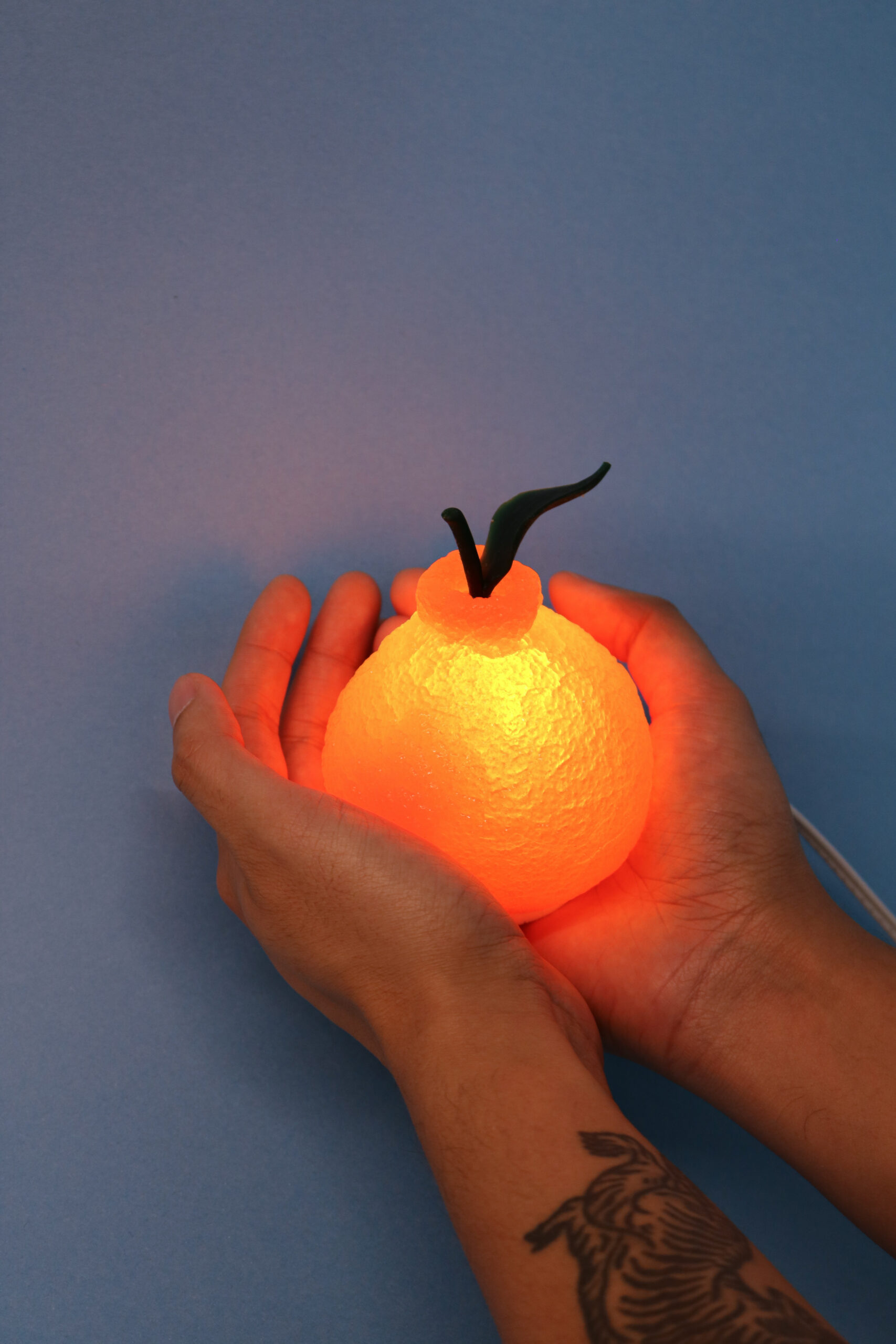
My course How to Make Things also offers a microcosm of the entire product development experience. Within just eight weeks, students move from an idea to a prototype to a small-scale production run of 24 products. The course culminates in an end-of-semester pop-up sale, one of our most popular Studio events, which generates thousands of dollars in revenue for the student teams. There aren’t many classes at Penn where students get to walk away with a few hundred dollars in their pocket. You don’t get much more of a visceral entrepreneurial experience than that!
Student entrepreneurs also use the Studios to manufacture products. Brian Temsamrit (BE’24), Janice Noh (BE’24) and Karin Dyer (BE”24) co-founded Lumpy Studios, a line of Asian-inspired home goods that utilizes our resources and space.
Just last year, alumni of the IPD program made it onto Shark Tank, with ChompSaw, a cardboard-cutting tool for kids that raised over $1 million on Kickstarter. What role did the Engineering Studios play in their success?
ChompSaw co-founders Kausi Raman (IPD’23) and Max Leichty (IPD’22) heavily utilized Studio resources to bring their venture to life. Max and Kausi were part of the inaugural team of studio technicians when the Studios opened in 2021, and played an integral role in setting up the space and became experts in our fabrication technologies.
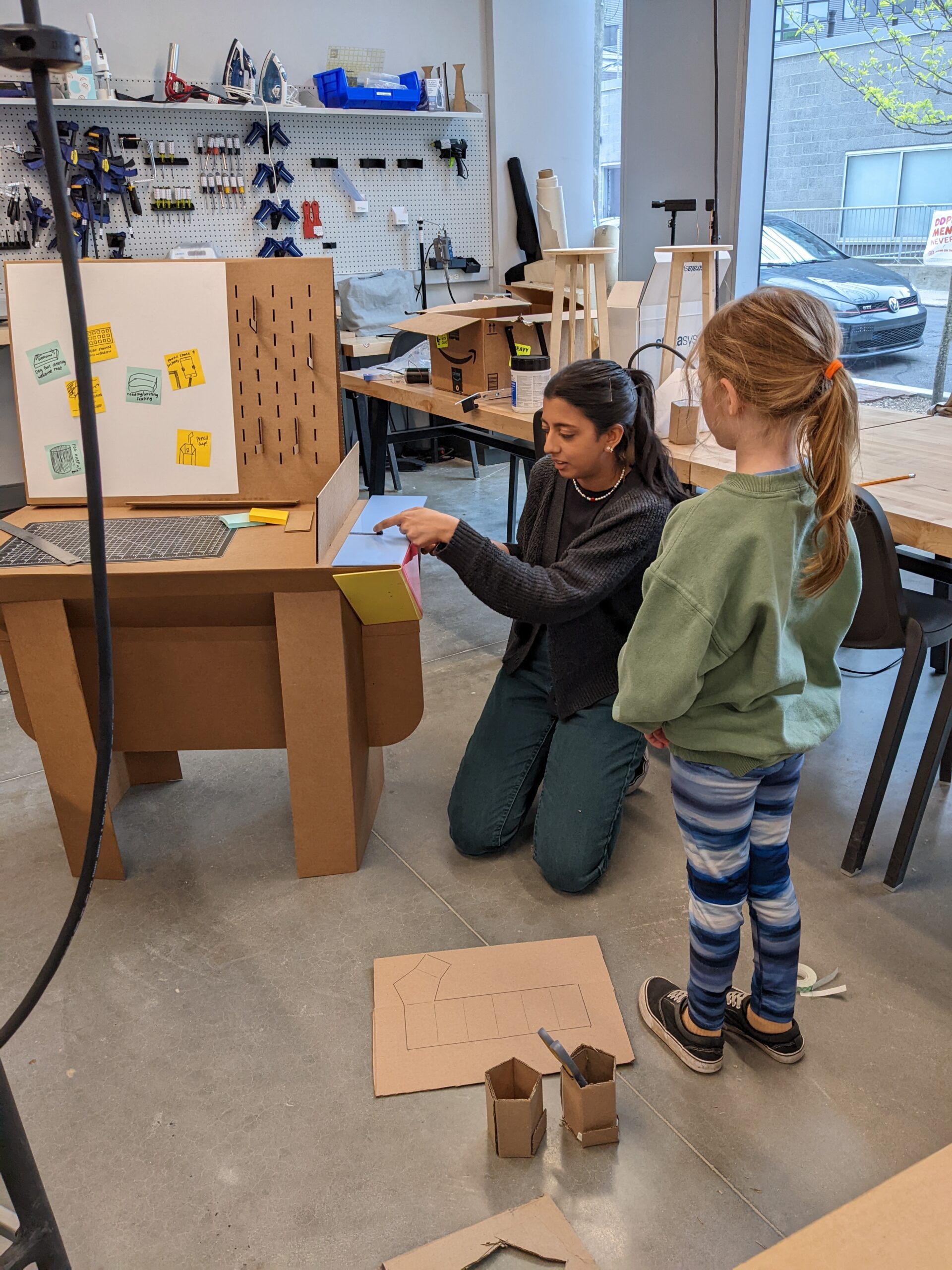
Kausi also took How To Make Things and later was a teaching assistant for the course. She and Max leveraged their expertise to develop many iterations of ChompSaw prototypes here at the Studio. With additional support from VIP-X, Venture Lab’s in-house startup accelerator, they were able to leverage our prototyping resources as a key part of their entrepreneurial journey.
Penn students — and engineers in particular — are often trained to seek the ‘right’ answer, but in innovation and entrepreneurship, perfectionism can be a barrier. How do the Engineering Studios help students move past that mindset?
We continually work to build a culture of experimentation, iteration and learning from failure by providing access to prototyping tools and materials, allowing students to quickly test ideas without the fear of high costs or limited resources.
I often tell my Studio Techs that we’re “pushing cardboard this week!” — meaning we like to direct people to use cardboard for our lasercutting services as an environmentally friendly, low-cost and quick material to prototype with.
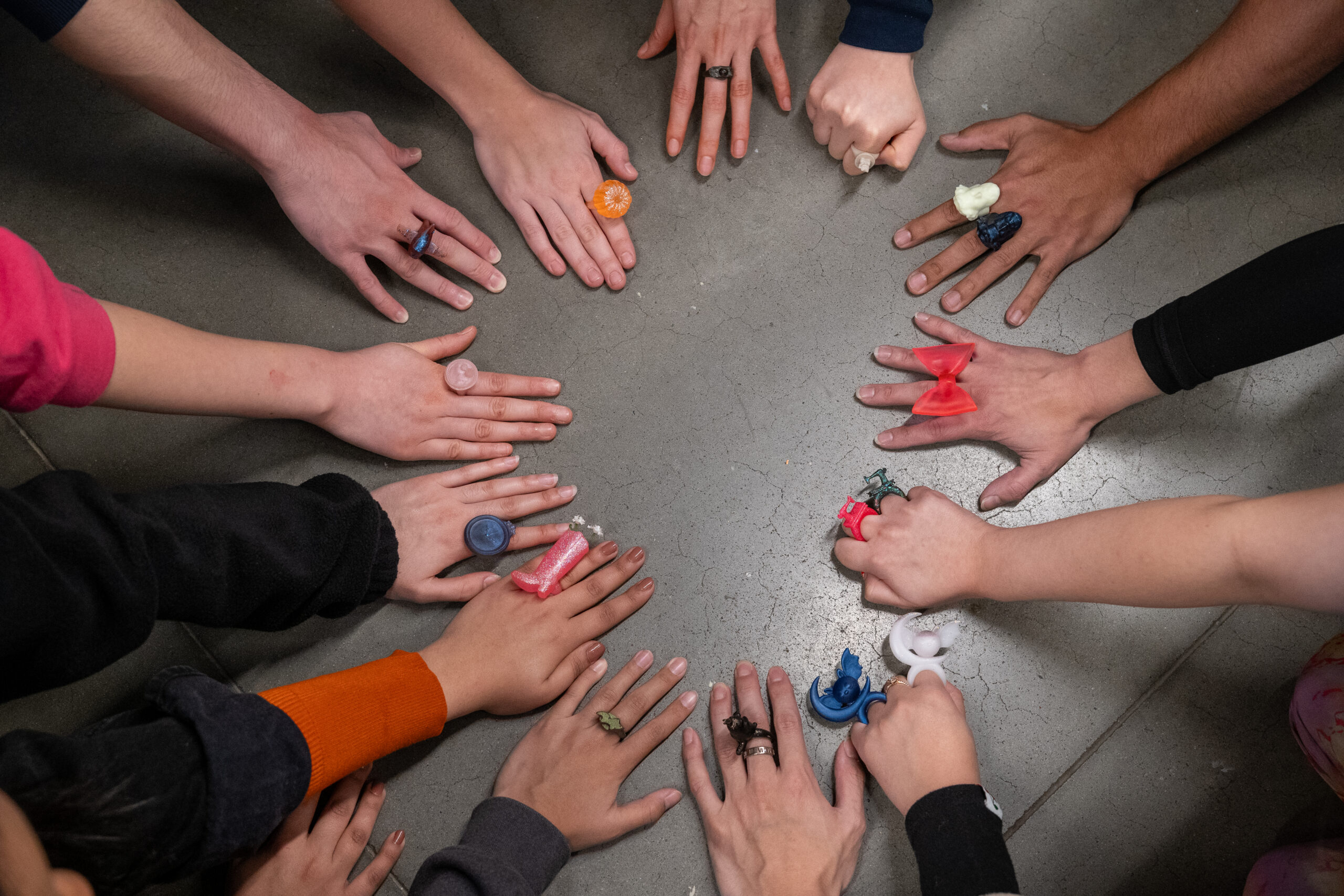
Cardboard isn’t seen as a precious material, making it easier for students to recognize mistakes, view them as opportunities for iteration, and simply toss their prototype in the recycling bin to start again.
Many students find it difficult to move away from an initial idea they were convinced was the best solution, but once they start making their concept tangible and testable, they often realize it’s not the most effective approach.
Through prototyping, students begin to develop a more flexible mindset. Experimentation, iteration, and embracing mistakes are all essential parts of the process, helping them unlock new, and often better, solutions.
What do you wish more students knew about the Engineering Studios?
The possibilities here are truly endless. We have laser cutting, 3D printing, hand tools and software for designing objects all in one workspace staffed with knowledgeable studio technicians. All these tools and materials are free to use, even for students who aren’t in a class like How To Make Things.
Everything is designed to be very accessible, but the tools and materials are just the starting point. You can 3D print molds to cast silicone. You can cast chocolate into edible art. You can cast wax to make candles. Combining these tools opens up an infinite array of possibilities.
The important thing is to not be intimidated by coming here. If you have ideas for something you want to make — whether it’s functional, artistic or both — we can teach you how to make it.
Penn students, faculty and staff interested in accessing the Engineering Studios @ Venture Lab can sign up for their free membership online.
After completing an in-person safety training, members gain access to the Engineering Studios workspace, as well as lasercutting and 3D printing services. Students who register also gain access to the Venture Lab Slack workspace and additional programming.
Caputo’s own work will be on display at The Clay Studio as part of the Small Favors exhibition from April 10 to June 29, 2025.
